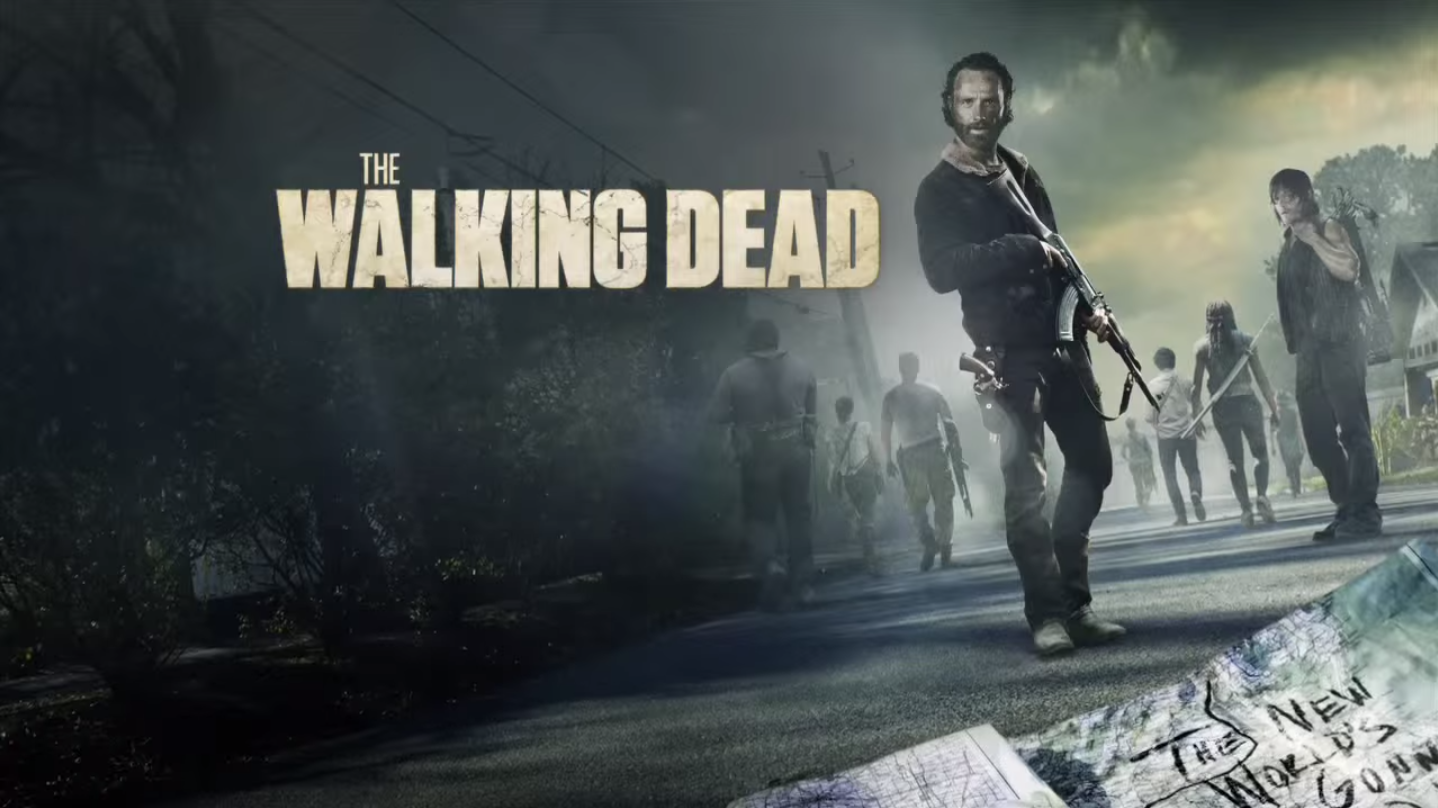The Walking Dead is an AMC US series, whose season 7 is currently on show, and which enjoys similar success as Game of Thrones. In the script – The dead turn into zombies and roam hunting for their preferred delicacy – the living, whom they search relentlessly for, a saga that does not augur anything more at first sight than graphic and blood-shedding entertainment. Very soon however, the script opens up to organisational issues that touch on a great variety of management modes, thus raising the point of the complexity and stakes of this discipline. The Walking Dead may thus turn out to be a playful way to approach some of the essential notions of the subject.
Organisations, Resources, Competition, Competencies, Management
The Walking Dead universe is post-apocalyptic: the world has been brought down to heaps of ruins and forests, all infested with walking-dead.
Very soon, heterogeneous groups of survivors gather through chance meetings. Their environment is as hostile as it is hyper-competitive: as nothing is produced any more, all resources (food, medecines, shelters) are limited, and thus fiercely coveted. Nothing may also be taken as granted either: some survivors have indeed tried to set up in a former jail deemed to be safer, but that was without taking the jealousy of other groups into account
In fact, each one of these clans operate as an organisation, sharing resources (whether human or material), work and capital. Just like an enterprise, they are systematically a gathering of interdependent individuals, working towards the same goal.
But the simile does not end there: as is the case with all companies whose survival necessarily involves searching for new markets –customers being free and thus volatile, these groups of survivors draw up strategies, try to think differently from their competitors to mine out niches, review the tasks of their members according to their competencies and the needs of the moment, and promote promising profiles (Carol, a fifty year old mother who is a gifted fighter moves from the galley to armed action), and manage their resources and stocks sparingly. And of course, when you talk of an enterprise, you should mention also management, leadership and structure issues.
From participative management to directive management
To put it in a nutshell, Management is ‘the way or art of leading an organisation, to manage it, to plan for its development, and to control it’ (Raymond – Alain Thiétard). This is precisely what The Walking Dead shows us through the various groups met as seasons unfold, ranging from management by terror, to very vertical but benevolent management, and even up to an advanced form of participative management, where decisions are by show of hands: all major trends are to be found in the series.
A charismatic leader: Rick
Rick, a lead character, is the perfect example of the classic definition of what a leader is, after David Rendall: the members of the group follow him out of their free will. He does not derive any glory nor preferential treatment from his position in the group. He proposes a better world (the big vision); he comes from the group he leads, and his function emerged naturally more than he himself sought it. He is not always right, but is credible and is known to be sincere. His management style is rather democratic, with everyone having their say, without too much hierarchy exercised.
The paternalistic governor
Another type of leader there, who does not suffer contradiction: the Governor, in whom we find all the essential codes of paternalism: he takes great care of the members of his community by ensuring them true comfort, while at the same time, keeping them far from decisions, and even more so as regards his actions (only a few men enjoy the privilege of being privy to his secrets). Strategy and laws proceed from him only. He takes on all responsibilities, applying good husbandry and imposing a life style, but is capable of cracking down when needed.
Negan and management by terror
Falsely ironically kind, Negan reigns on his own folk by the terror he inspires them, as a true tyrant: enjoying personality cult (one must swear allegiance to him by denying oneself by declaring ‘I am Negan’), omnipotent, unpredictable, applying ritual punishments and humiliations in public, such are the signatures of his management style.
Negan’s Clan rules its sector thanks to its nuisance potential, and thus no longer needs to produce or search for the resources to survive: it just dominates other groups by levying at regular times half what they possess. In return, the latter groups may continue on with their own operation modes and a semblance of autonomy, while not having to fear anything any longer as they have become an integral part of the Negan galaxy. Naturally, this mode of acquisition bears some resemblance to those that prevail in the current economic world….
From the family business to the joint-venture
A few family structures also exist (this is the case of Maggie’s family for instance), but they are quickly absorbed by larger organisations, for want of being able to survive and be self-sufficient in an environment that is as unpredictable as it is dangerous. However, the joint-venture remains the most common mode for two groups of survivors to come together: each will retain its autonomy and identity, but both come to an agreement on how to collaborate to reach a common goal. Agreements are thus entered in, wisely negotiated, but not always abided by…
As a matter of fact, other similarities could also be easily found between The Walking Dead and the way enterprises operate, and more specifically what their management styles are (power and counter-power, team management, etc..), but one would need a complete course to do so!





